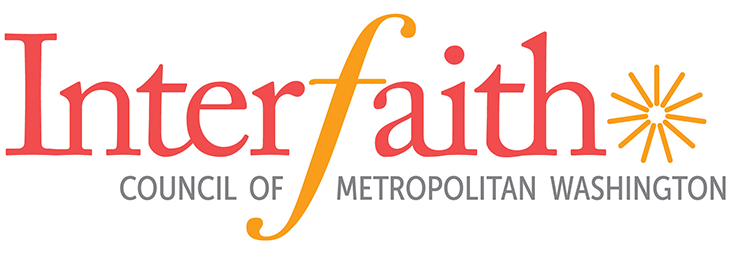In every faith tradition and spiritual practice, there exists a guiding principle on how to respect one’s community. Precepts such as the Golden Rule exhort religious followers towards an acknowledged interconnectedness and a pursuit of harmony. Yet, while such principles of peace exist, it would be inconsiderate to state that such precepts are consistently upheld, nevertheless, one must question if religion holds a place in contemporary discourse on upholding human rights. While some may dismiss religion as antiquated or a driver of social bifurcation, it remains an essential lens to consider when examining how many advocate for human rights. Upholding dignity for all requires the involvement of every sector of society, and that includes those that profess a spiritual or religious worldview.
Religion has a complex history in global rights movements, prompting consideration, and doubt, of its role in our interconnected world. Some may suggest the discussion of religion in human rights is far too volatile, and not without fair reasoning. It does not take much time for one to identify several cases in which both intra-religious and interreligious conflict has led to or exacerbated human rights violations. Whether looking back to the multi-century Crusades, Sunni-Shia tensions, or the influx of Christian nationalism in the United States, it is easy to cast religious communities as too volatile to include in the realm of human rights advocacy.
The capacity of religion and its practitioners, however, cannot be confined to a singular adversarial narrative. From the Black Christian Church’s racial justice advocacy during the Civil Rights Movement to Hindu, Jain, and Buddhist communities that seek to exemplify Ahimsa, religion has been and still, it continues to be, advantageous in the protection of human rights. With 85% of the global population identifying with a religious or spiritual identity, its relevance should not be disregarded. The question now shifts from whether it should be included to how it can be effectively integrated.
Article 18 of the Universal Declaration of Human Rights states: “Everyone has the right to freedom of thought, conscience and religion; this right includes freedom to change his religion or belief, and freedom, either alone or in community with others and in public or private, to manifest his religion or belief in teaching, practice, worship and observance”. The manifestation of one’s beliefs in public and private creates ambiguity. For some, this can act as a justification for religious extremism or oppression, and that reality should not be neglected. Contrasting the potential for extremism, however, is the capacity to forge positive change. We can look to the present to examine how religious communities and institutions use their “freedom of thought, conscience, and religion” in defense of human rights through public advocacy and on-the-ground service.
A particularly insidious form of human rights abuse that remains on the global conscience, is gender-based and sexual violence. Whether in armed conflict, where human rights abuses occur rapidly and in a compounded manner, or domestic partner violence, the consequences are not just physical but also psychological, often carrying systemic ramifications. From the Rwandan Genocide to the contemporary conflict in the Ukraine, the harm of gender-based violence (GBV) is irrefutable. In service of addressing this issue, we can shift our attention to the East African nation of Uganda, where members of religious communities have demonstrated significant commitment to addressing GBV. In response to a case involving a pastor perpetuating domestic violence, the Anglican Church of Bupoto has created a campaign to educate schools, villages, and other facets of society on how to recognize and report signs of domestic violence. Further, in northern Uganda, various Pentecostal churches have sent representatives to remote areas to converse with men and community leaders on the respect of women and children.
With the capacity to address numerous human rights issues, we can also explore the role of interfaith initiatives. For example, the Interfaith Rainforest Initiative exists to unite various faith traditions to partner with indigenous communities to safeguard the world’s rainforests. Environmental degradation undoubtedly impacts the world’s most vulnerable populations, fundamentally undermining the livelihoods and well-being of present and future generations. In June 2017, an initiative was launched at the Nobel Peace Center in Oslo, Norway. It brought together religious leaders from Christian, Muslim, Jewish, Buddhist, Hindu, and Taoist faiths, along with climate scientists, rainforest experts, and indigenous peoples’ representatives from Brazil, Colombia, the Democratic Republic of the Congo, Indonesia, Meso-America, and Peru. Together, this cohort united to highlight the urgent issues of tropical deforestation, despite their religious differences.
It is important to be sensible when considering the relationship between religious communities in advocating for human rights: Not all religious communities may be compatible or willing to partake in advocacy and this could potentially hinder progress. Some faith traditions may pose barriers to engagement, especially for women and LGBTQIA+ individuals; this matter requires careful consideration and further examination. Nevertheless, there is an overwhelming constituency of religious leaders, institutions, and practitioners seeking to improve the world by committing themselves to human rights, justice, and equity.
As we look forward to imagining and creating a better world, we must seek to unite with willing members of society. Religious communities provide extensive networks and moral frameworks conducive to both secular institutions and initiatives. Secular institutions and discourse on human rights should not hesitate to consider how these communities can work harmoniously; the same consideration applies to religious communities. Through future engagement, may we learn to appreciate the strengths of both secular and religious worldviews as we strive for a world based on universal dignity and shared humanity.
By Faith Snipes, past IFC intern
